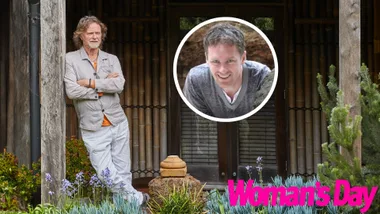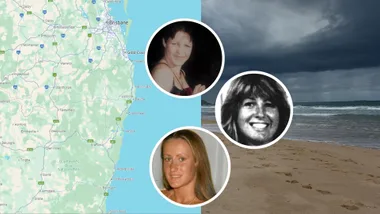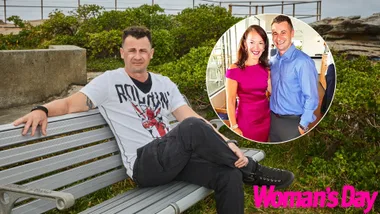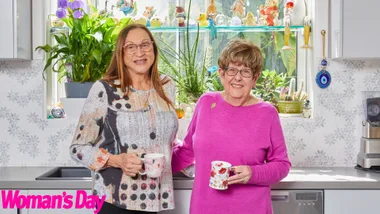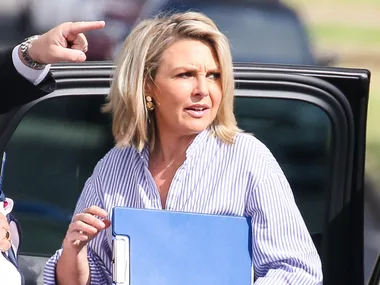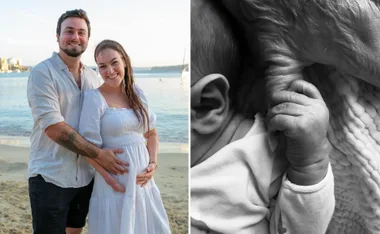When victims of domestic violence are faced with the almost predictable question, “Why didn’t she just leave?” Ms Batty said many women don’t want to leave their family home but instead “they just want the violence to stop”.
In a frank discussion Ms Batty said that the first reason women may not want to leave the family home is that despite the violence the “dread” they feel about what kind of reaction leaving might trigger – like a loved on being injured or killed – is terrifying.
Ms Batty talked about that decision to leave as being “the highest point of risk, to be killed or injured.”
“And sometimes when you’re in that type of relationship, all I can say is you have a fear that you can’t really explain but it is a dread and it is a fear of what could happen next.”
Ms Batty knows this fear all too well. Her ex-husband, Greg Anderson was an abusive spouse and murdered their son Luke while he was at cricket practice in February 2014. Luke was just 11-years-old.

Rosie Batty with her son Luke.
Ms Batty also told Q&A that process involved in reporting abuse “has to change”, citing that “you can’t always trust the response” of police and courts to without falling victim to judgement.
Ms Batty went on to say that this system is something she’d like to see change in the short term.
“Because although there are many very very good policemen it doesn’t mean that every single policeman treats you with respect that you should be treated,” said Ms Batty. “And again, when you go to court there are many many good judges and good magistrates but there is an awful lot that again show the same judgement and criticism.”
“So your journey is as tough going through that process as it is for the abuse that you’ve been subjected to. And that has to change.”
In July 2014 Ms Batty told ABC’s four corners that she believed Luke’s death was avoidable.
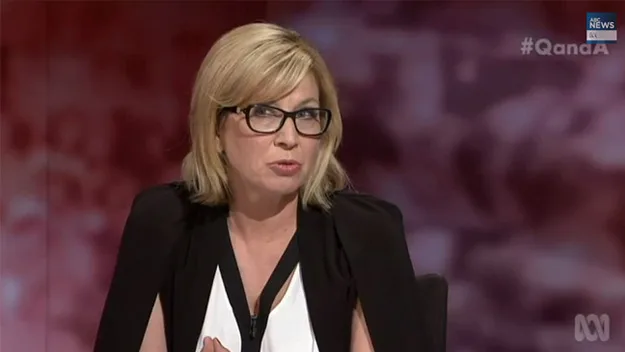
Rosie Batty on ABC’s Q&A panel
“I don’t blame police, they did the best they could with the resources they have,” she said. “What upsets me is that we have a system where the various bodies meant to protect women and children in danger are not talking to one another. There needs to be a streamlining of the processes.”
Victoria Police Acting Chief Commissioner Tim Cartwright also appeared on the Q&A panel and accused the courts of being “archaic” in some of the ways they deal with matters of domestic violence. He said these systems could be frustrating for police.
“We don’t have all sorts of information which might help us on the ground to protect the woman, or at least understand the situation and understand the risk that we are seeing,” he said.
Commissioner Cartwright also said there was a “need for cultural change” to aid those who were reporting abuse.
“[The] first thing we need to do is acknowledge and believe the women … one of the things we need to do as a community is to support women in these situations as friends, as family, as leaders in the community,” he said.
Ms Batty called for a “coordinated approach” between police and the courts.
“We work a lot in silos and if there is some kind of coordinated approach, where a continuum of violence was monitored and looked at, that would be a great help,” she said.
Ms Batty’s Q&A appearance came ahead of a national study that has found that children a bearing the brunt of alcohol related violence with more than a million children currently harmed by other’s alcohol consumption.
Ms batty will present the findings at New South Wale Parliament House on Tuesday.
If you or anyone you know is a victim of domestic violence please contact the domestic violence hotline for help or call 000 if you are in immediate danger.


